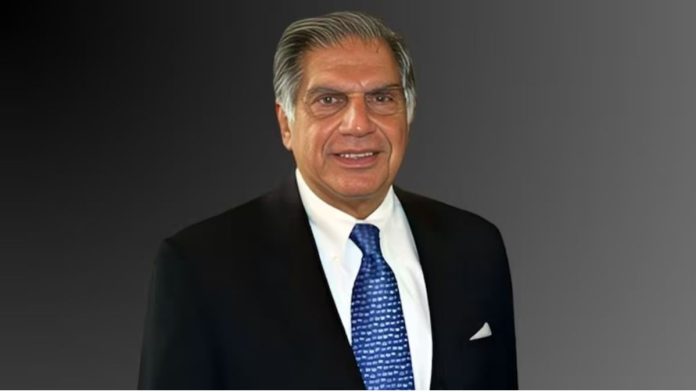Ratan Naval Tata, the revered chairman emeritus of Tata Sons, passed away at the age of 86. A towering figure in India’s corporate and philanthropic world, Tata’s contributions spanned more than two decades of leadership at one of the nation’s largest and most respected conglomerates. He became chairman of the $100 billion steel-to-software Tata Group in 1991 and transformed it into a global powerhouse, guiding the company through multiple industries and periods of significant change.
In a late-night statement, N Chandrasekaran, the current chairman of Tata Sons, expressed deep sorrow. “It is with a profound sense of loss that we bid farewell to Mr. Ratan Naval Tata, a truly uncommon leader whose immeasurable contributions have shaped not only the Tata Group but also the very fabric of our nation,” he said. “For the Tata Group, Mr. Tata was more than a chairperson. To me, he was a mentor, guide, and friend. He inspired by example.”
Ratan Tata’s A Global Legacy
Ratan Tata’s legacy extends far beyond his tenure as the chairman of Tata Sons. Under his stewardship, the group expanded its global footprint, acquiring key brands like Jaguar and Land Rover in 2008, a move that cemented Tata’s position as a formidable player on the world stage. This acquisition, regarded as a reverse-colonial act, symbolized India’s growing influence in global business.
He is also remembered for fulfilling his promise to India’s middle class by launching the Tata Nano in 2009. Priced at ₹1 lakh, the Nano became a symbol of innovation and affordability, reflecting Tata’s commitment to making products accessible to all.
In 1996, Ratan Tata founded Tata Teleservices, and in 2004, he took Tata Consultancy Services (TCS), the IT arm of the conglomerate, public. TCS is now one of the world’s largest IT services companies, contributing significantly to India’s reputation as a global technology hub.
A Heart for Philanthropy
Beyond business, Ratan Tata was known for his deep commitment to philanthropy. He believed in giving back to society, and during his time as chairman, he ensured that the group’s charitable trusts made significant contributions to healthcare, education, and social welfare initiatives.
Chandrasekaran emphasized Tata’s lasting philanthropic impact: “From education to healthcare, his initiatives have left a deep-rooted mark that will benefit generations to come.” Even after stepping down as chairman in 2012, Ratan Tata remained involved in the group’s charitable trusts, reflecting his unwavering dedication to improving lives across India.
The Final Chapter
On Monday, Ratan Tata had addressed growing speculation about his health, clarifying on social media that he was undergoing routine medical checkups due to his age. Just days later, the country mourns his passing.
Tata was twice the chairperson of the Tata Group conglomerate, first from 1991 to 2012, and again from 2016 to 2017 during a brief return after the ousting of his successor, Cyrus Mistry. Their much-publicized feud resulted in one of India’s most high-profile boardroom battles, leaving an indelible mark on corporate governance in India.
Despite stepping down from active management, Ratan Tata remained a beloved figure on social media, where he frequently shared personal stories, championed animal rights—especially advocating for stray dogs—and encouraged Indian citizens to strive for a better future. He was India’s “most followed entrepreneur,” with millions of followers on platforms like X (formerly Twitter) and Instagram.
Early Life and Honors
Born in 1937, Ratan Tata’s early years were marked by personal challenges. Raised by his grandmother after his parents separated, Tata went on to study architecture at Cornell University before completing a management course at Harvard Business School. Although a lifelong bachelor, he once revealed that he had come close to marriage several times, most notably while working in Los Angeles in the early 1960s.
For his immense contributions to India, Tata was awarded the Padma Bhushan, India’s third-highest civilian honor, in 2000, and the Padma Vibhushan, the second-highest, in 2008.
Remembering a National Icon
Tata’s personal values of humility, integrity, and innovation left a lasting impression on the corporate world and beyond. As tributes pour in from across the globe, Ratan Tata’s legacy will endure, not just in business but also in the lives he touched through his philanthropic efforts.
The Tata Group, synonymous with India’s industrial prowess, will forever be shaped by Ratan Tata’s vision and leadership. His life’s work exemplifies the values of progress, responsibility, and compassion, making him a true icon of India.
Must Read: 70th National Film Awards: Manoj Bajpayee, Rishab Shetty, AR Rahman, Mithun Chakraborty Honoured






